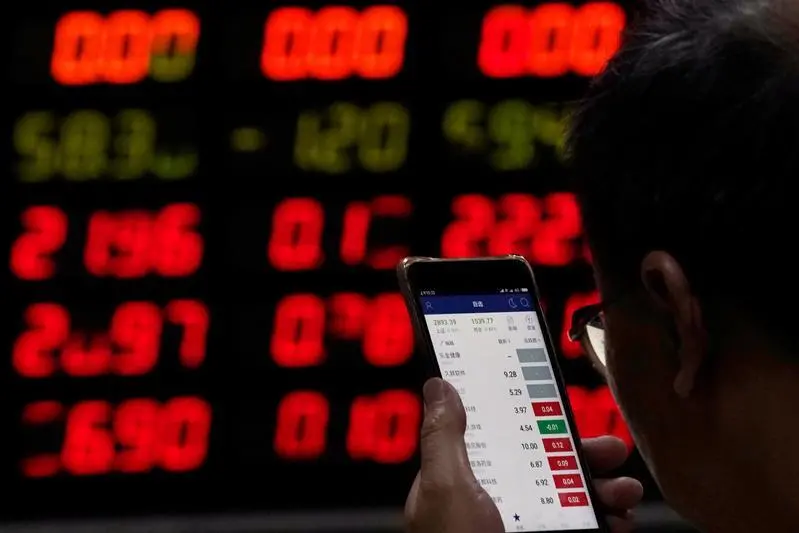PHOTO
SINGAPORE - The Japanese yen slipped on Friday after the Bank of Japan (BOJ)stuck to ultra-easy monetary policy and made no changes to its outlook, while stocks and bonds were kept under pressure as investors hunkered down for U.S. interest rates to stay high.
The BOJ, as expected, maintained super-low interest rates, left its yield control policy unchanged and signalled it was in no rush to phase out its massive monetary stimulus. Governor Kazuo Ueda is due to give a news conference at 0630 GMT.
The yen fell about 0.3% to 148.09 per dollar after the announcement, a whisker from Thursday's 11-month low of 148.46. Japanese bond and stock markets were closed for the mid-session break, but Osaka-traded stock futures pared losses a little bit.
Japan's Nikkei had been 0.9% lower at the end of morning trade. MSCI's broadest index of Asia-Pacific shares outside Japan touched a 10-month low before recovering to flat thanks to gains in Hong Kong.
Chinese state media reports on a slew of regulatory measures to support business were welcomed by traders, who sent the Hang Seng and mainland China markets up about 0.6%.
Benchmark 10-year Treasury yields hit a 16-year high of 4.503% and 10-year Japanese government bond yields stood near decade highs of 0.745%.
The S&P 500 had dropped 1.6% overnight and is down 2.7% in a week when policymakers were at pains to sound hawkish, even if a peak in rates is near.
Federal Reserve officials lifted their 2024 rates projections, forcing investors to dial back bets on cuts next year and driving two-year yields above 5.2%.
In a split decision, the Bank of England left rates on hold for the first time in nearly two years, sending sterling to a six-month low, although Governor Andrew Bailey stressed that the job was unlikely to be done yet.
Central banks in Sweden and Norway announced 25 basis-point hikes with the prospect of more to come and the Swiss National Bank surprised investors with a hold on rates, sending the franc down about 0.7% on the dollar and 0.6% on the euro.
"It's a lot of mixed messages and stories, and often you get those around turning points," said Craig Ebert, senior economist at BNZ in Wellington.
"The markets always sniff for a reversal once they see a peak, but they've been burnt in various ways along the way," he said.
A surge in oil prices has also been unnerving investors, since it is likely to prolong the inflation pulse. Brent crude futures steadied at $93.51 a barrel on Friday and are up nearly 8% for September so far.
S&P 500 futures were steady in Asia. European futures fell 0.6%.
Elsewhere in foreign exchange markets the expectation of sticky U.S. interest rates has supported the dollar, which reached a six-month peak on the euro overnight at $1.0671 .
In emerging markets, India's rupee jumped in offshore trade after JPMorgan said it would add Indian bonds to its widely tracked emerging markets debt index, setting the stage for billions of dollars in foreign inflows.
(Reporting by Tom Westbrook; Editing by Edmund Klamann and Kim Coghill)




















